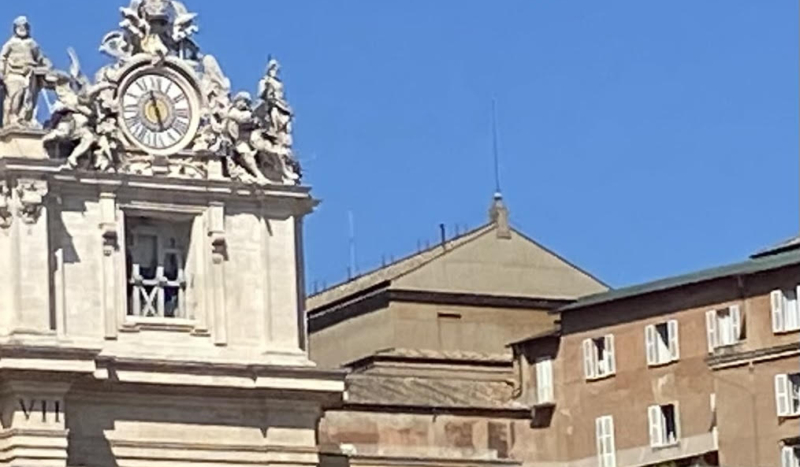
View of the Sistine Chapel from St. Peter's Square on May 2, 2025. Photo credit: CatholicVote (McKenna Snow)
VATICAN CITY // The conclave has begun. The cardinals within the Sistine Chapel can cast ballots up to four times in a day in the process of electing a new pope. But at most, the world will see smoke from the chimney atop the Sistine Chapel only twice in a day. How does it all work?
It should be noted that if the chimney produces black smoke, that means a pope has not been elected. If it produces white smoke, a pope has been elected.
On the first day of the conclave, only one vote is cast, in the evening. Starting May 8, the 133 cardinals cast their first vote of the day in the morning. By roughly 10:30 a.m. local time — six hours ahead of the Eastern time zone — the first vote will be counted.
If a pope is not elected in the first vote, the chimney will not produce any smoke. The first of the possible two smokes per day will occur around noon after two votes.
Two-thirds of the cardinals need to be in agreement in order for a pope to be elected. If the first vote does not result in the election of a new pope, the cardinals will vote again.
If a pope is not elected in the second vote, the chimney will produce black smoke shortly after the vote.
This black smoke means no pope was elected during the first or second votes of the day.
A third vote is taken in the midafternoon. If a pope is not elected, the chimney will not produce any smoke. The world must now wait for the outcome of the fourth vote to see the chimney’s smoke again.
The cardinals will take the fourth and final vote of the day in the evening. If no pope is elected, the chimney will produce black smoke for the second and final time for the day, again communicating that no pope was elected in the last two votes.
If a pope is elected during the first, second, third, or fourth round of voting, the voting ends immediately after that round, and the chimney produces white smoke.
The voting process, therefore, happens up to four times a day if a pope is not elected, and only two black smokes will happen — unless a pope is elected.
Pope Benedict, for example, was elected in the third vote of the second day, thus the white smoke was released after the third vote of the day, in the midafternoon.
